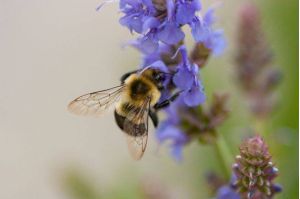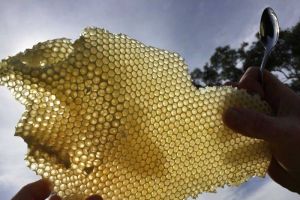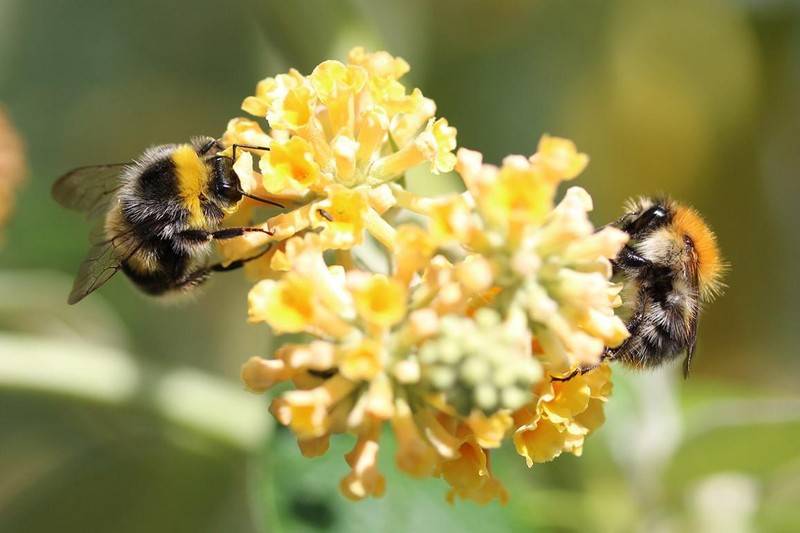Europe's bee population is dying. The number of pollinator species threatened by extinction is increasing each year, and human activity is the main cause.
Those are the alarming findings of a report published by experts of the Intergovernmental Science-Policy Platform for Biodiversity and Ecosystems Services (Ipbes), founded by 124 UN member states and based on the findings of hundreds of scientists. Findings of the report, entitled Pollination, pollinators and food production are supported by other researchers as well.
According to Coloss, an international research network set up by the Beekeeping Institute of the University of Bern, the mass death of bees in Europe has become a problem every year.
Experts at the institute concluded that the negative trend, although it fluctuates, seems to be longer term and is caused by: urbanisation, monoculture, bee diseases, plant protection methods unfriendly to pollinators, and other stress factors.
Wintertime deaths of bees rose from 5-10 percent to 25-40 percent, findings show, and bee colonies are increasingly collapsing during the summer as well.
The stock reduction of domestic bees is less conspicuous, owing to the care of beekeepers, who replenish destroyed colonies. Other pollinating species suffered even heavier losses, and due to this drastic decline, the role of honeybees in pollination is increasingly important.
The importance of the apiculture sector is far greater than its contribution to GDP, as over 80 percent of crop yields and 75 percent of European food production depend on bee pollination.
Providing the conditions to maintain this ecological balance is a key priority because a lack of pollination can cause a loss in yield from plants dependent on pollination.
If domestic bees are unable to make up for the decline in other wild pollinators, the ecological imbalance will likely directly threaten the entire agricultural sector and food industry.
Thus, maintaining and improving the standard of the apiculture sector serves all of society and it is vital that beekeepers continue their work. After all, if the number of beekeepers decreases, it would result in a further drop in the already declining number of bees.
A growing number of beekeepers have decided to stop production due to difficulties in the apiculture product market, their main source of revenue.
Chinese imports
The European Union is only half self-sufficient in apiculture products and must import several hundred thousand tons every year.
Honey from outside the EU (mainly from China) is often of poorer quality but far cheaper.
European beekeepers who produce at a higher standard and under stricter food safety rules cannot compete with these prices and are thus unable to produce honey at a price that guarantees their livelihood.
Barring other market opportunities, beekeepers will be forced to look for another source of income, and the decline in bee colonies will most likely continue.
The profitability of the apiculture sector in Hungary has decreased by 50 percent compared to the previous five-year average, and this trend is likely to continue. Honey concessions to third countries per EU free trade agreements further increase import pressure.
The aggregate revenue from pollination is 50 times as much as the revenue from direct sales of apiculture products. If the European Union wants to maintain the apiculture sector, it must proportionately recognise its usefulness and attribute far greater importance to apiculture itself than to its products.
Hungary has put forward several proposals that could help the situation in the short term.
Consumers must be properly informed about the origins of different products. Given that current rules allow producers to conceal the real country of origin, we need regulations that would require honey producers to indicate the actual country of origin.
The 2017 Honey Report of the European Parliament clearly states that the rules on origin labelling and traceability of beekeeping products must be immediately reviewed. EU promotion tools should also be used to stimulate consumption in the internal market.
We consider it important that resources of national apiculture programs are used for activities that directly or indirectly address the health of the bees, such as the purchase of beehives, honeycomb, or sugar.
Old equipment significantly contributes to unfavourable health conditions, but beekeepers can't modernise with their businesses running at low profitability. Hungary is already using all available allocations, therefore the amount of available subsidy for this period should be increased.
Greater flexibility is also needed in the next Common Agricultural Policy (CAP) period in terms of member states' ability to transfer between pillars. We would like to be able to transfer allocations from both CAP Pillar I and Pillar II to separate sectoral programs.
In the long run, the commission must analyse and assess the available research and closely investigate the causes of the decline in bee colonies.
In light of these findings, the commission should then make a proposal to address the current apiculture crisis.
AUTHOR BIO
Istvan Nagy is Hungary's minister of agriculture. Eurobserver




